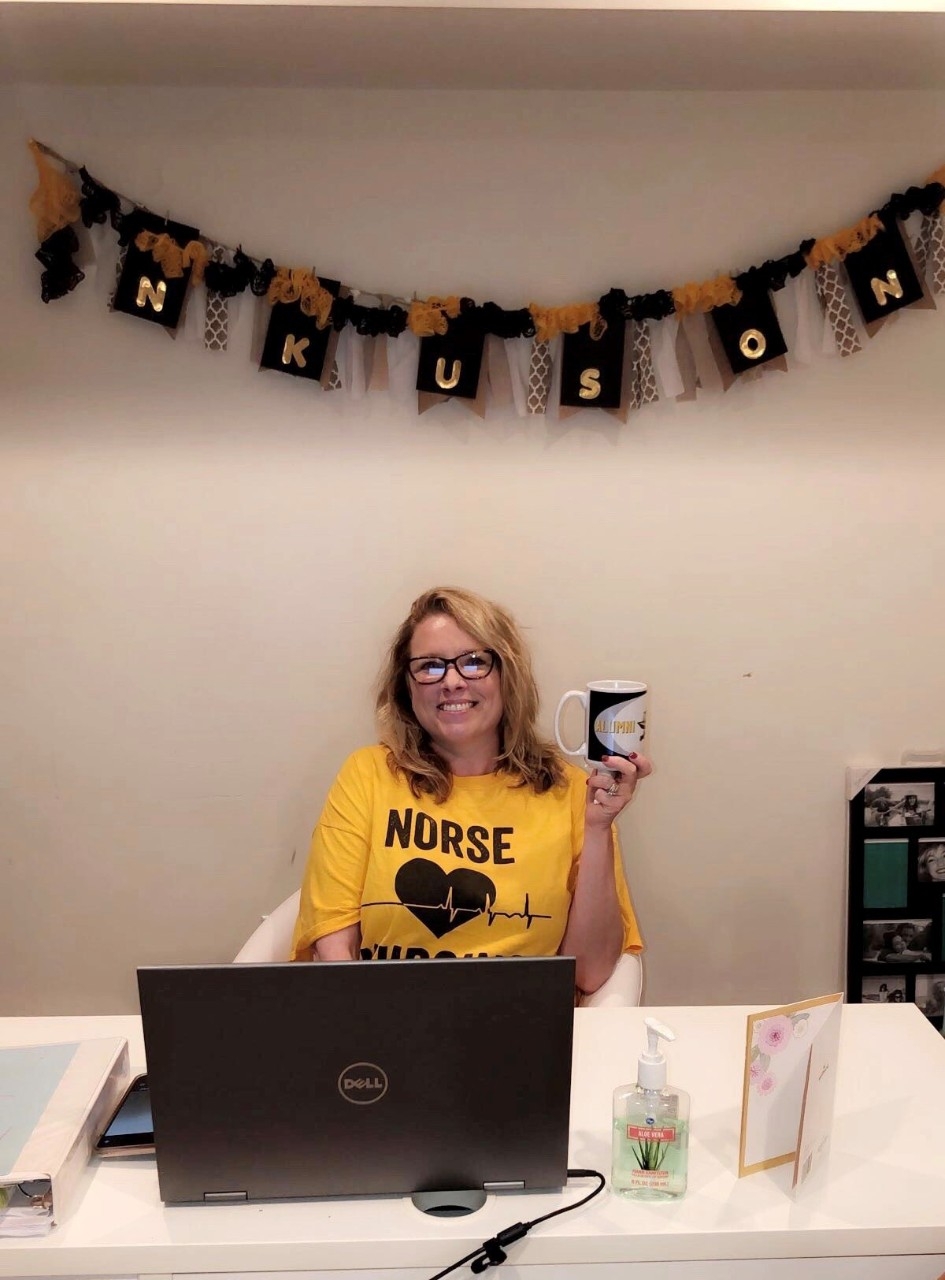For Jennifer Hunter, community health is more than just a job.
“This has been my passion my whole career,” she says.
As director of Northern Kentucky University’s
Nurse Advocacy Center for the Underserved (NACU), Hunter places
Nursing students in the region’s underserved communities to increase access to health care.
Hunter was named NACU’s director in July 2019 shortly after she retired from her 28-year post as director of nursing and clinical services at the NKY Health Department. Her passion for community health and nearly three decades of knowledge, she believes, made her the perfect person for the job. NACU gives the region’s underserved communities access to health care they might not have otherwise, as some of them don’t have insurance, a primary care provider or transportation.
“The NACU model is that we provide care in their environment,” she says. “We’re trying to get care to those who don’t have access to it, as many of them rely on hospital emergency rooms for care. These are services they might not get anywhere else. But we link them to other resources if they need something we can’t provide on site.”
NACU has four sites in Kentucky: Madison Avenue Christian Church, Ida Spence United Methodist Mission at City Heights, Welcome House of Northern Kentucky and Golden Towers.
There are two paid NACU nurses, but the rest are volunteers. And all of the services they offer are free for the community. They screen patients for medical conditions like HIV and the flu and also offer vaccinations.
Hunter, who is also a clinical instructor, believes the NACU model benefits more than just the communities NACU serves—and that’s her favorite part about her job as a clinical instructor.
“We’re showing students what community health is all about. When we take them to NACU sites, they’re exposed to a population they’ve maybe never thought about before,” she says. “Most students think they’ll be in the ER or ICU if they go into nursing. This is such an eye opener for them. They realize that these are all of the things that public health can do for an individual and that we can be a part of that.”



